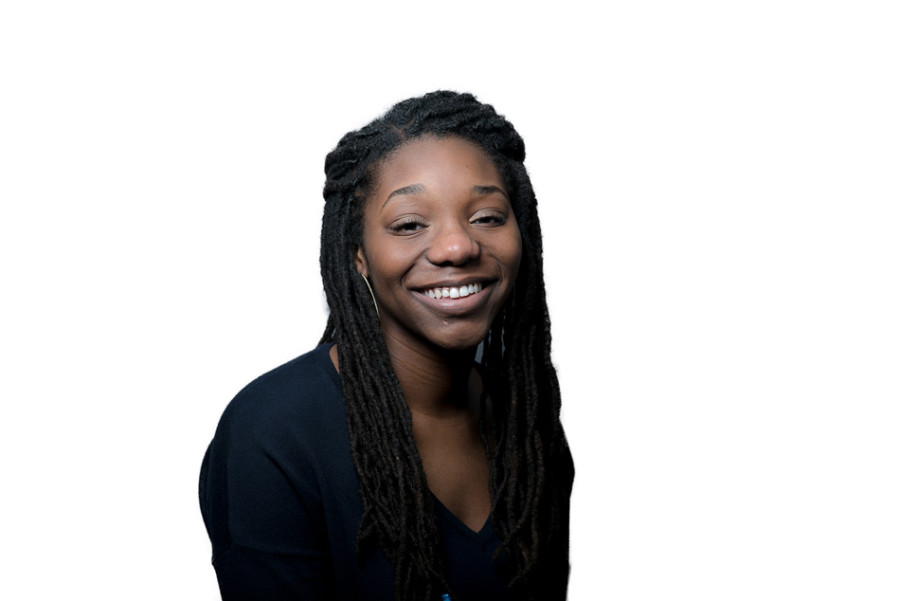The Spectrum: It’s time to think outside the white racial box
April 30, 2015
This essay is part of The Spectrum, a weekly forum in our Opinion section for marginalized voices to share their perspectives. To submit a piece for The Spectrum or discuss story ideas, please email [email protected].
Privilege is convenient.
Any competent discussion of racism will most likely include words like “institutionalized” and “systematic.” Though we know racism is ingrained in how our society has developed and functions today, we are not truly considering what institutional behaviors and norms mean for the pursuit of progress and equality. We are a long way away from where we should be, and it is specifically because there is a large group of people who are refusing to understand the responsibility implicit within these terms.
White people, I’m talking to you.
To be clear, just because I am a black woman does not mean I have always understood what it means for racism to be institutionalized. I didn’t realize that it exceeded racial slurs and irritating stereotypes. As I’ve mentioned in another column, I had a majority of white friends when I was in high school. It was not until I attended college, took a handful of African-American studies courses, read “Racism Without Racists,” and really listened to the perspectives of my white peers that I began to understand how many “racial conservatists” — i.e., racists — I really knew. I realized that I had been making excuses for my white friends’ silence in racial arenas followed by ignorant statements. I thought that because they were white, they simply did not know any better and it was not their fault — I could explain a concept for the umpteenth time and it was not a big deal.
But it was their fault and it is a big deal.
Institutionalized racism is ingrained in society — a system of inequality. This system bars marginalized peoples from opportunities, while at the same time discriminating against them in varying forms. Some progressive whites understand “the struggle,” but a large number refuse to do so. Unfortunately, the actions or beliefs of one progressive white person do not change the overall stakes for a person of color. Instead, there needs to be a large mass of progressive whites and other privileged groups of people working toward equality. Societal issues are ingrained in how the system functions and individual effort is important but inadequate.
Disinterest in understanding institutionalized racism fails to take responsibility for what is happening in the world today. When I say responsibility, I am not necessarily drawing a parallel to slave owners back in the 1860s and present-day socially privileged whites. Many people have bought into the idea that issues like police brutality and housing discrimination are black issues. Though it is not always clearly stated, silence and colorblind attitudes are clear indicators of apathy to what is happening in the world.
Because of institutionalized racism, the assumption that minorities alone can revamp the whole system single-handedly is absolutely absurd. White people have a responsibility to understand what is going on and do something about it.
And it is not my job to educate either.
I, as a black student, do not have to spend my time educating white students on the many discriminatory things happening in the world. Alana Massey wrote an article for Pacific Standard in April about this exact misconception, noting that “it is not the job of people of color to teach their own humanity to their white peers.” I am not sure when this became an accepted practice, but I know that even I made — and sometimes still make — excuses for my white peers. (“They’re from a suburb,” or “They only had one black kid in their high school graduating class, why would they know better?”)
It is time for white people and other privileged groups to take some racial responsibility in educating themselves, because we all know I and other students of color have plenty of other things to do — like avoiding the police, who clearly don’t know how to handle themselves in the presence of a black youth.
The past few days have seen nationwide protests following the death of Freddie Gray, a black man who fell into a coma and died following a spinal cord injury sustained while in police custody in Baltimore. The discourse spurred by these protests is a clear indication of the lack of education of how racism functions today. The clear mishandling of people, situations and trials has resulted in a rightfully enraged community, but many are choosing to focus on the destruction of a CVS/pharmacy and not the loss of a life. I can talk about the numerous accounts of clear police brutality until my throat burns and write about how much I do not trust the police until my hands are numb, but if you choose not to believe that these problems exist institutionally, then what is the point?
Clearly, the general public prefers to condemn blacks when we organize alone, so it is time for whites to step outside of the white racial box they’ve been hiding in and play their part in this humanitarian all-inclusive fight. We have been fighting adamantly for years, and it’s time we realize any plan for racial progress that does not include the crucial role of whites is a bankrupt one.
Arielle Chase is a Medill sophomore. She can be reached at [email protected]. If you would like to respond publicly to this column, send a Letter to the Editor to [email protected].


